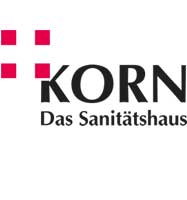Article
Univ.-Prof. Dr. med. Markus Schwaninger
A brief article on the treatment of Allan-Herndon-Dudley syndrome (AHDS)
In AHDS, the MCT8 gene is defective. MCT8 is a cellular transport protein for thyroid hormones. As a result of the genetic defect, the brain and other important organs are not supplied with sufficient thyroid hormones. Tiratricol, a new drug for the treatment of AHDS, is used to compensate for this deficiency. Tiratricol acts similarly to thyroid hormones, but unlike them, it does not require MCT8 to reach its site of action. It thus alleviates the consequences of AHDS, but its effect on intellectual disability and other neurological symptoms is incomplete. Therefore, new treatment strategies are needed. One possibility would be gene therapy for AHDS, in which the defective gene is replaced. The required DNA sequence is known and available. The big challenge now is to direct the gene to the cells in the body where it is needed. For administration in humans, genes are packaged in vectors that carry them to the target cell. Adeno-associated viruses (AAV) are often used for this purpose. We are currently testing which type of AAV vector is best suited to transport MCT8 in the body. Closely related to this is the question of which cells in the body the MCT8 gene must reach in order to alleviate the consequences of AHDS. In a mouse model of the disease, it is already quite successful in mitigating the consequences of MCT8 deficiency and, in particular, the neurological symptoms. The challenge now is to make this treatment applicable to patients with AHDS.
31. 07. 2025. Institute of Experimental and Clinical Pharmacology and Toxicology at the University of Lübeck



